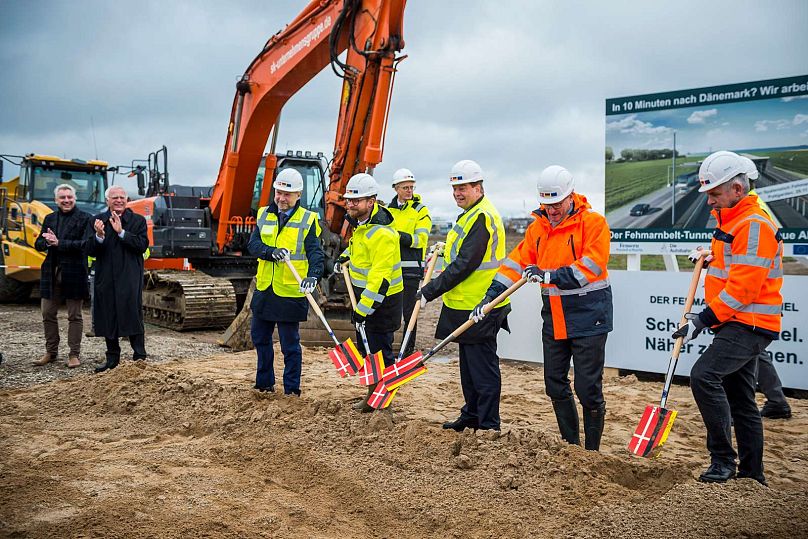Danish firm Femern A/S says it will be the world's longest road and rail tunnel.
Construction work today began on the German side of an underwater tunnel connecting Germany and Denmark.
 ADVERTISEMENT
ADVERTISEMENT
 ADVERTISEMENT
ADVERTISEMENT
The €7 billion project under the Baltic Sea is set to be completed by 2029.
The Fehmarn Belt Fixed Link will slash train journey times between Hamburg and the Danish capital Copenhagen to under three hours.
Work has already begun on the Danish side but it wasn't until today that construction began on the German side in Puttgarden.
Danish firm Femern A/S says it will be the world's longest road and rail tunnel.
"The Fehmarnbelt connection is an incredibly important construction project for both Denmark and Germany, indeed for the whole of Europe," said Danish transport minister Benny Engelbrecht.
"It is a milestone in the long history of the Fehmarnbelt connection, and I am glad that today we have put the shovel in the ground in Puttgarden, so we are now working on both sides towards the common goal."
It is expected to take cars 10 minutes and trains seven minutes to go through the 18-kilometre tunnel.
"This is one of the largest and most important transport infrastructure projects in Europe in the current decade," said Enak Ferlemann, parliamentary state secretary at Germany's transport ministry.
"It helps Europe grow closer together and promotes the development and exchange of business, science and tourism."
"The Fehmarnbelt tunnel is not only moving Copenhagen closer to Hamburg, it is also having an enormous impact on Schleswig-Holstein," said German transport minister Bernd Buchholz.
"Model calculations show that, due to the improved transport infrastructure, considerable employment growth can be expected in the Ostholstein district alone."











